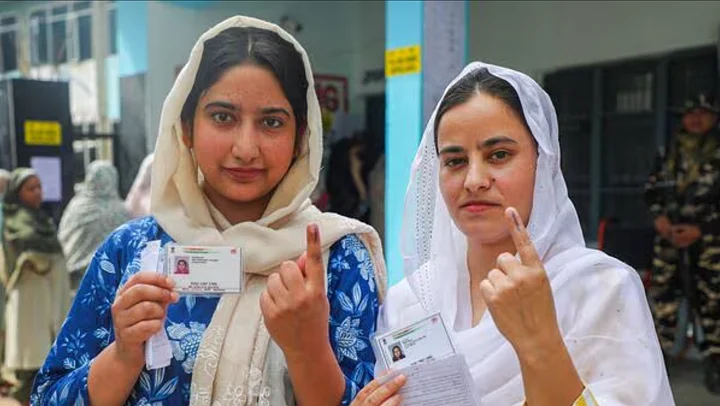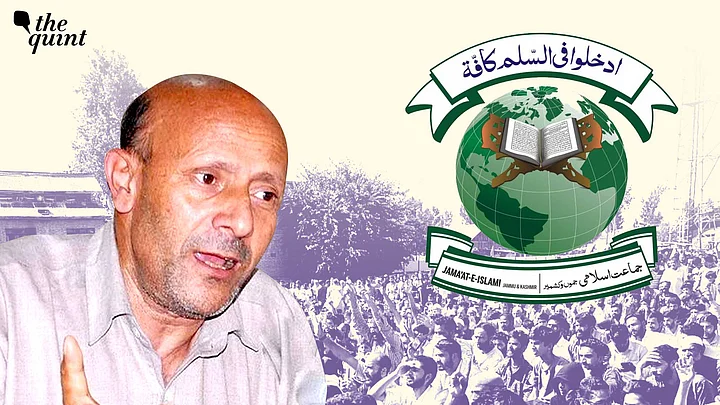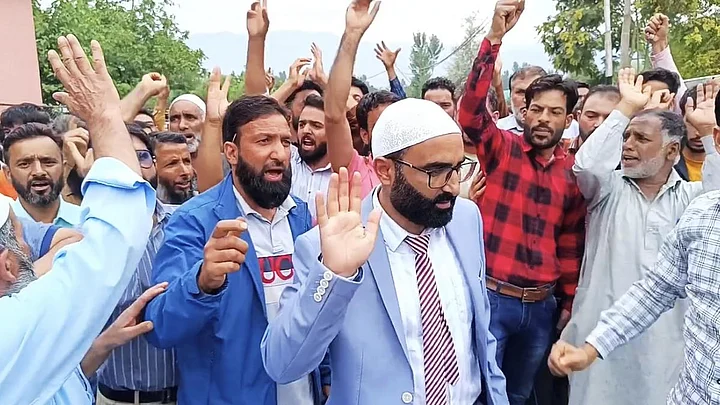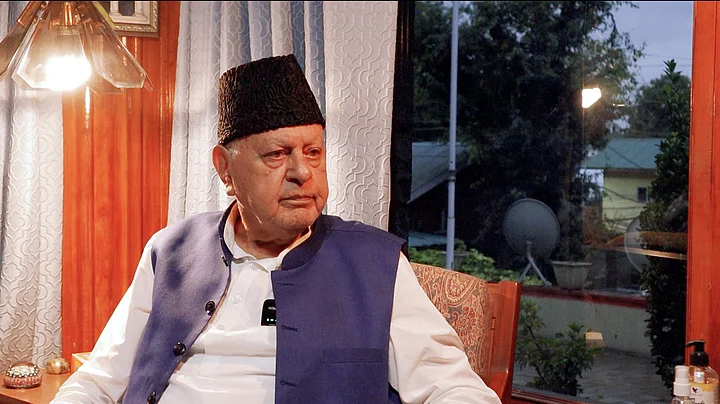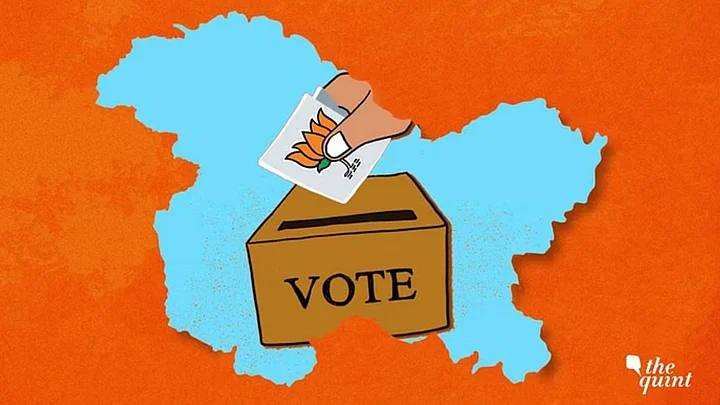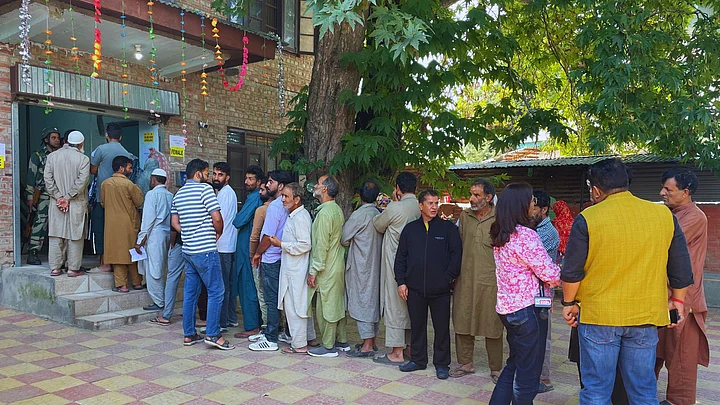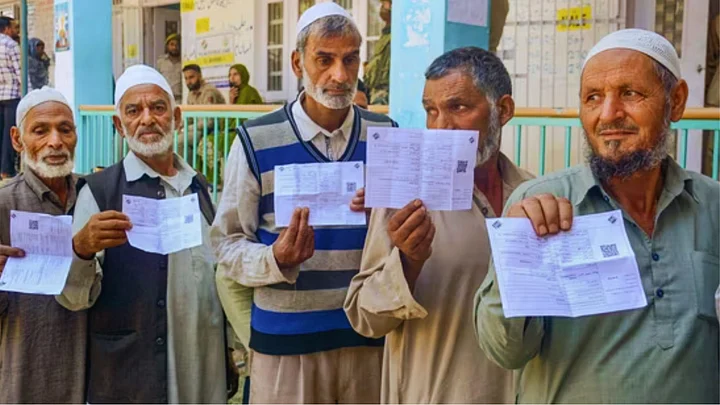I received a message from a well-read middle-aged Kashmiri. Verbatim, it read, "Good Day, Sir. our agencies are hellbent upon to destroy what we have achieved in the recent past. They have provided a readymade platform to these JEI men to propagate their ideology and play the so-called victimhood. Where is Dovalian Doctrine. For petty electoral gains they are again making a mess over here."
That view, blaming security providers for prospective breaches of security, may seem exaggerated, but it only underlines the extent of frustration and distress among analytical Kashmiris. Their frustration with the state apparatus is, in a sense, a call for action—action in pursuit of peace and security.
One disgusted message reads, "We have been again pushed to live in a banana republic"—conjuring images of renegade mercenaries, violence, and political instability. In several towns and villages, groups of men have been unhappily discussing what’s happening, questioning what the state apparatus is up to, clucking their tongues, and expressing deep disappointment.
Several thinking Kashmiris are very upset at the electoral space that has been provided to erstwhile separatists during the ongoing assembly elections in Jammu and Kashmir — even till midnight, and at bus-stands, without permissions. People at large do not want a return to violence and mayhem, hartals or agitations—which they suspect it might lead to.
Bilal Lone, a 42-year-old Kashmiri pharmacist in Newa in Pulwama district told me, "The real anti-Muslims are these (presumed separatist) people. At least deaths have stopped. That is the most important thing. Killings have stopped. There used to be two bodies on the road outside my clinic every day—of schoolboys. …I am worrying that situation should not get disturbed again after elections."
He even says that elections should not have been held for another five or ten years, by which time stability could have taken root. Kashmiris such as he are deeply upset at the shrill, belligerent, Islamist tone that a host of campaigns have adopted since 'Engineer' Rashid was released from jail a week ago. "It is all slogans now. Nobody talks of their manifesto any more," remarks political activist Tanveer Khan. All this does not portend well, analytical Kashmiris fear. It could bring back the bad old days. And they don’t want that!
Loss of Face
Of course, if one looks at the net result for these once-separatist outfits, taking the electoral field has severely damaged the reputation of at least the Jamaat-e-Islami (J-e-I)—even among its adherents.
I’m told that, in one south Kashmir village, people took a J-e-I-backed candidate to the graveyard and suggested they pray for the soul of a killed militant at his grave. After the prayer, they turned on the candidate, asking why Jamaat had inspired the young man to get himself killed if they were going to participate in elections.
The trouble with public anger is that it can turn in unexpected directions. Distressed people could turn to new heroes who might show new dreams of chimeric freedom with a religious aura. And shamed elements within such erstwhile separatist groups could be led to raise banners of revolt all over again in order to restore their standing—after they have been effectively silenced and sidelined in various ways.
Already, 'Engineer' Rashid has emerged after the Lok Sabha elections as the new icon of potential protest. He represents a vague chimera, but that could take any shape. So far, his close aides acknowledge, he has never said anything specifically secessionist, just takes belligerent positions on issues like beef.
Same Old Issues
North Kashmir, where Rashid’s strength is concentrated, is to vote next Wednesday. That’s when his strength will be tested. It seems like the J-e-I efforts haven’t yielded much, and a spokesperson for the outfit announced the expulsion of those who led the move to back independent candidates in the fray in certain constituencies. So, in terms of winning seats, it’s really up to Rashid’s candidates to rock the boat—or not—next Wednesday.
So far, Kashmiris are by and large voting for the same old issues that they have since at least 2008—16 years ago. Jobs are the biggest hope and, as in the past several decades, backers of a community leader (khadpainch) vote for one or another candidate in the hope that that khadpainch will get the elected MLA to fix government jobs for their kith and kin.
It’s a return to the old system, in which nobody wants to work in the private sector. Even a marital match is best obtained through having a government job; a sarkari peon is preferred to a private sector manager. For, a sarkari job brings security and pay even during hartals, a pension, and opportunities for corruption—plus, participation in the network of power, influence and oppression.
Since the oppression is in the name of 'India', it can even give some perverted minds a glow of religious accomplishment. That’s how things have been for decades, are not for the moment, but could be again. It’s one of the ecosystems that these thinking Kashmiris are worried about as they see signs of it rearing its ugly head again.
Votes have been polled across south Kashmir and now central Kashmir mainly along Khadpainchi lines. People talk of '370' almost as if it were a garment that had been ripped off their collective body, but it’s not as if getting it back was a priority. Not even statehood. In fact, people know that the lieutenant governor’s administration has been effective—but it’s less approachable. It is access to the corridors of power, and jobs, that most people want back.
An interesting trend is that even backers of the J-e-I and of the mujahids of yore talk decidedly of being Indian. The converse: they have no time for Pakistan. An economically shattered country holds no pull. A third trend, however, is that Islam and religious rhetoric is a pretty ubiquitous theme in political speeches—perhaps more than in recent elections.
In part, that third factor is an almost involuntary response to the shadowy pall of religious zealotry that lurks behind the participation in these elections of 'Engineer' Rashid’s candidates, those backed by a faction of the J-e-I, and the religious rabble-rouser, Sarjan Barkati—who is contesting from jail mainly through his daughter’s campaign on the ground.
Stark Contrast
It is the robust presence of these elements that thinking Kashmiris are upset about, and hold the state apparatus responsible. Not only has Rashid been released from Tihar Jail on bail in order to campaign, but Barkati has been able to file his nomination papers from jail—as was Rashid for the Lok Sabha elections.
Their papers were accepted by Returning Officers, and officials say that the electoral machinery is well-disposed towards them. That is a stark contrast to the intolerance of even a whiff of potential anti-state activity for the first two years after the 2019 constitutional changes. "Something is rotten in the state of Kashmir," Shakespeare might have noted.
(The writer is the author of ‘The Story of Kashmir’ and ‘The Generation of Rage in Kashmir’. He can be reached at @david_devadas. This is an opinion piece and the views expressed above are the author’s own. The Quint neither endorses nor is responsible for the same.)
(At The Quint, we question everything. Play an active role in shaping our journalism by becoming a member today.)
